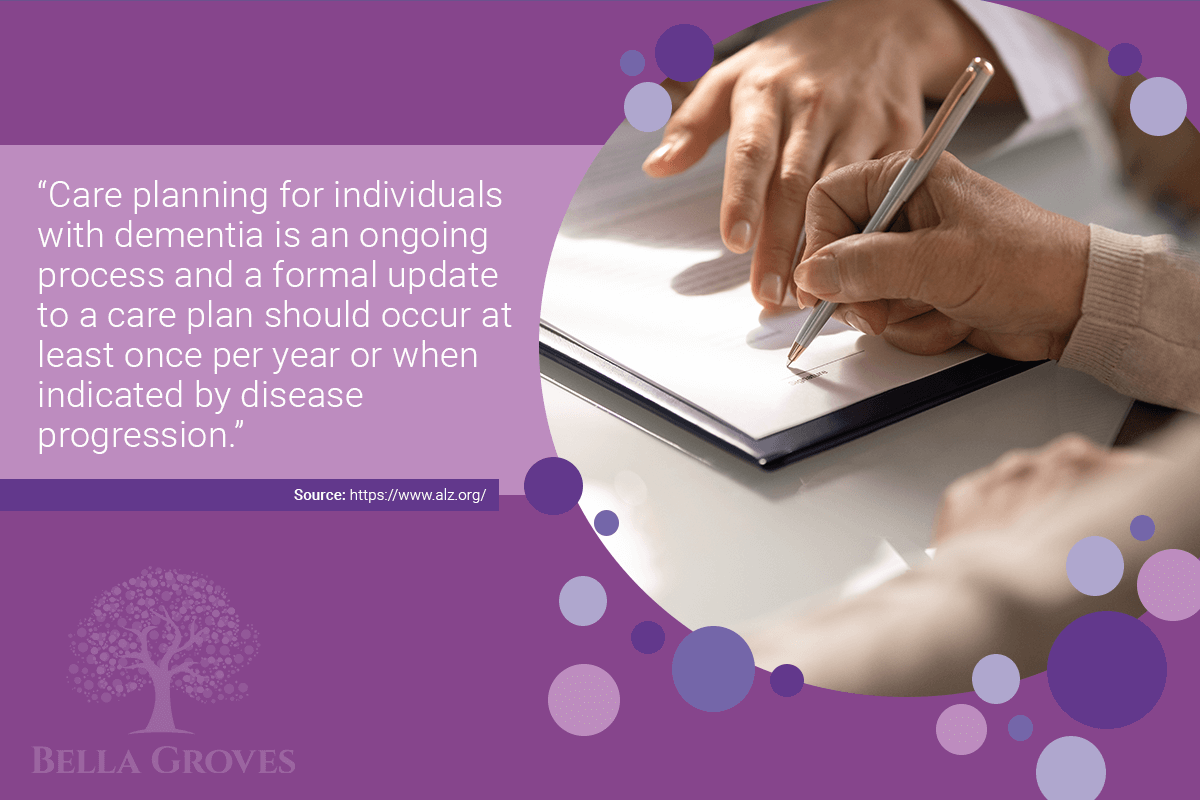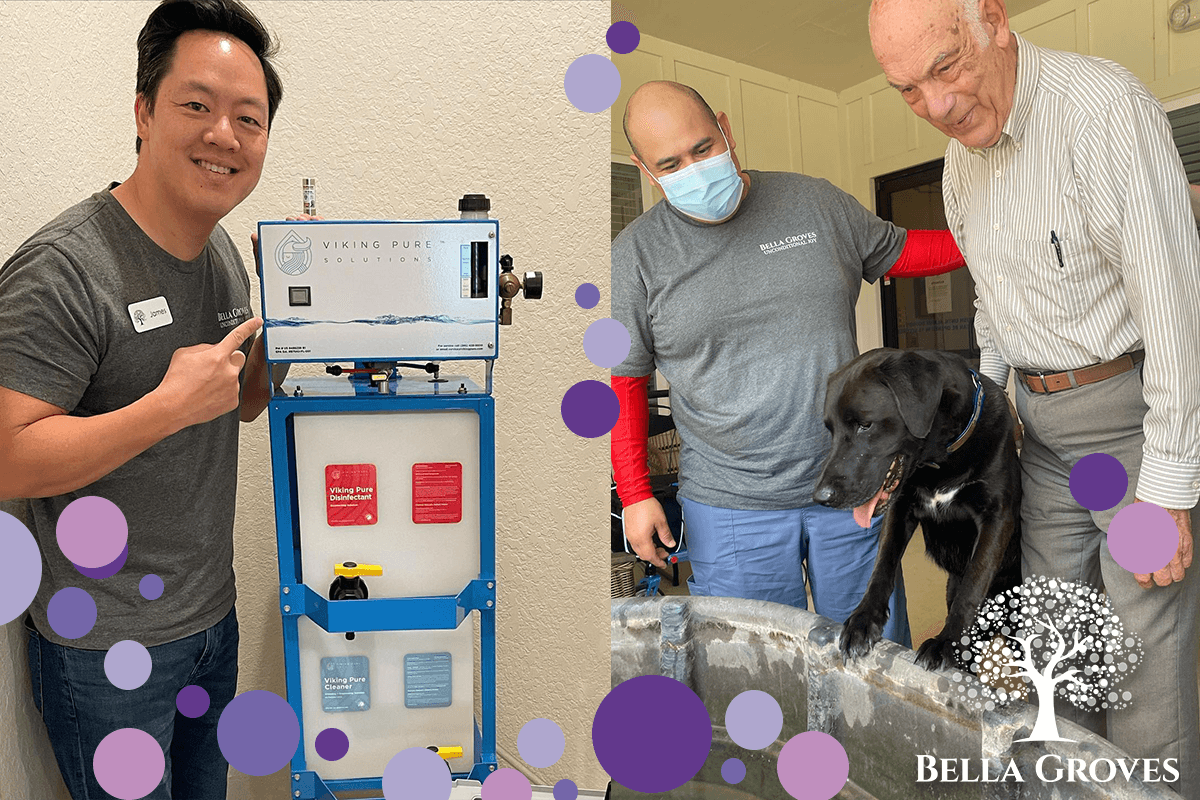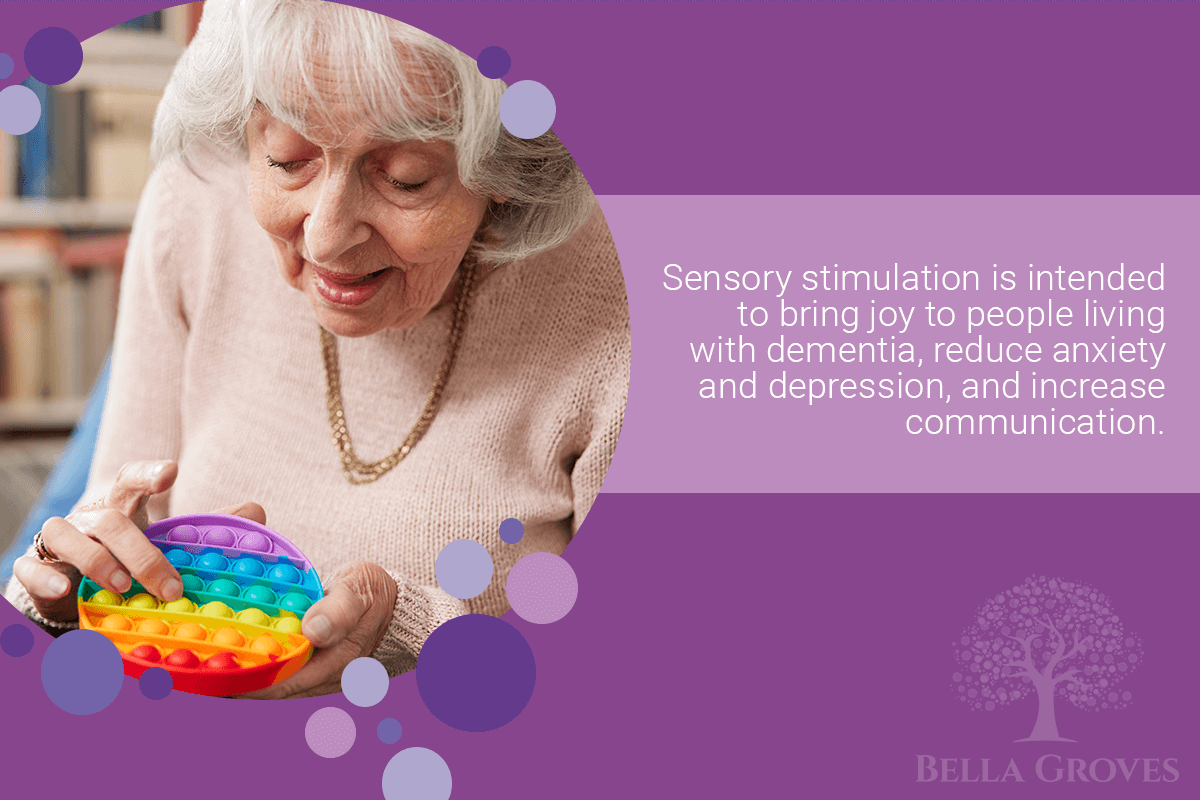
How to Develop a Dementia Care Plan
According to the World Health Organization, over 55 million people worldwide are living with dementia. Due to the rapidly aging population, that number is expected to double by the year 2050. Unfortunately, the vast majority of families impacted by dementia navigate this care journey alone, without any educational tools, resources, or support.
If you are actively caring for a person living with dementia or if someone you love has been recently diagnosed and you are planning for the future, you are likely asking yourself a lot of questions.
- Will I have enough time to dedicate to this care journey?
- Do I have enough knowledge and experience to give Mom her best quality of life?
- Is it selfish to consider memory care facilities and other care options?
This is where dementia can become an isolating experience for family members. Caring for a person living with dementia is a significant responsibility, and only those who have navigated these questions can provide adequate answers and information.
As you move forward, creating a dementia care plan can help your loved one, yourself, and your family finalize details, determine next steps, and be on the same page regarding care guidelines and wishes.
Steps to Take Following a Diagnosis
During the early stages of dementia, most individuals are able to function independently. For instance, your loved one might be able to continue living alone, driving, and handling daily tasks.
While hands-on care may not be needed at this time, it is an opportunity to offer emotional support, be proactive, and plan for the future. For instance, establish various routines and systems to help with cues, management, and other activities. If your loved one takes various medications, for example, use pillboxes, dispensers, and tools for reminders. Or work with them to set up automatic payment systems for recurring payments and bills.
This is also the time to evaluate how care will be handled moving forward. For example, as dementia progresses and more constant care is needed:
- Where is Mom going to live?
- Are you or another sibling/family member going to take on the role of caregiver?
As you plan for the future, it’s important to be realistic about caregiving expectations and abilities. As much as you want to be there for Mom, dementia care is a 24/7 job, and if you are also have children, a full-time job, pets, commitments, etc., you likely don’t have the time to dedicate to caregiving.
Fortunately, memory care communities offer a safe environment for those living with dementia to find connection, purpose, and joy. They provide the constant hands-on care and support so family members can focus on being the spouse, daughter/son, sibling, etc.
Prioritize Home Safety
Ensure their home is easy to navigate and equipped with appropriate safety features. Rugs, electrical cords, and clutter can lead to falls, so eliminate any hazards that could cause them to trip or become disoriented. Make sure that smoke and carbon monoxide detectors are installed and working properly.
As dementia progresses, further safety precautions should be taken in the home. For example, a person living with dementia may experience confusion or changes in judgment, which could lead to the accidental ingestion of non-food items. Because of this, it’s important to remove or lock up any liquids or items that could be harmful if ingested, such as cleaning products.
At Bella Groves, we partner with Viking Pure Solutions to make natural cleaning and disinfectant solutions on-site. This reduces the need for harmful chemicals while providing complete antimicrobial coverage and protecting our residents.
Organize Legal Documents
Think through any legal and financial preparations, so your loved one can get their affairs in order before the symptoms progress further. Ask your loved one about updating a living will, as well as financial and medical power of attorney.
”Legal documents help ensure that the wishes of the person with dementia are followed as the disease progresses and make it possible for others to make decisions on behalf of the person when he or she no longer can… While preparing these documents can be stressful, not having them can create problems such as uncertainty about who can make decisions or somebody making a decision that the person living with dementia would not want (alz.org).”
Navigating Dementia as it Progresses
A dementia care plan becomes essential as your loved one’s dementia progresses into the middle and late stages. In the middle stage of dementia, symptoms become more noticeable, and the person will need more support in managing daily life.
Due to the progression of certain symptoms of dementia, such as memory loss and/or wandering, your loved one is likely unable to live alone at this point, so this is when your dementia journey will start to change.
Everyone’s dementia journey is different, and our goal at Bella Groves is to be a guiding light for individuals and families from day one. For those caring for a person living with dementia, our Level 2: Dementia Navigator services provide guidance and structure. Our expertise includes knowledge and tools to help you care for your loved one at home and provides support and monthly consultants to ensure you navigate this journey with confidence, resources, and, most importantly, unconditional joy.
Our Bella Groves team is made up of individuals who have seen the impacts of dementia – professionally and personally – and have committed themselves to help individuals and families navigate dementia. We’ve created services and a residential care community that offers the care, expertise, and support you need, regardless of the stage of your journey.
If you have questions about your dementia care journey, we invite you to call us at (830) 323-0440 or email us at hello@bellagroves.com.


